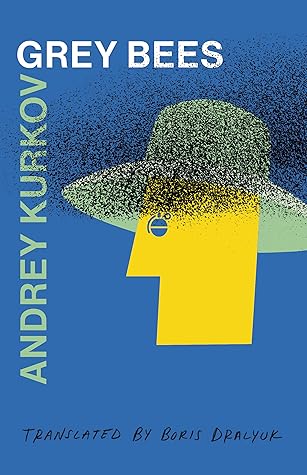More on this book
Community
Kindle Notes & Highlights
slippers he had fashioned out of an old pair of felt boots,
his eyes landed on the shovel – it was much brighter out here than inside. Lumps of coal poured down, thumping against the bottoms of the buckets. Soon the echoing thumps died away, and the rest of the lumps fell in silence.
Somewhere far off a cannon sounded. Half a minute later there was another blast, which seemed to come from the opposite direction.
The sound of distant bombardment, almost inaudible inside the house, now reached Sergeyich’s ears from the east.
There were only two proper streets in the village – one named after Lenin, the other after Taras Shevchenko – and also Ivan Michurin Lane.1 Sergeyich himself lived on Lenin, in less than proud isolation.
The army had been there for three years now, while the local lads, together with the Russian military, had been drinking tea and vodka in their dugouts beyond Pashka’s street and its gardens, beyond the remnants of the apricot grove that had been planted back in Soviet times, and beyond another field that the war had stripped of its workers, as it had the field that lay between Sergeyich’s garden and Zhdanivka.
they were reluctant to disturb the last two residents of Little Starhorodivka, who were clinging to their homesteads more tenaciously than a dog clings to its favourite bone. Everyone else in Little Starhorodivka had wanted to leave when the fighting began.
And so they left – because they feared for their lives more than they feared for their property, and that stronger fear had won out. But the war hadn’t made Sergeyich fear for his life. It had only made him confused, and indifferent to everything around him. It was as if he had lost all feeling, all his senses, except for one: his sense of responsibility. And this sense, which could make him worry terribly at any hour of the day, was focused entirely on one object: his bees.
Before letting his uninvited guest into the house, Sergeyich placed a broom in front of the “safety” axe by the door. You never know – Pashka might have a pistol or a Kalashnikov for self-defence.
But the axe was all Sergeyich had to protect himself. Nothing else. He kept it under his bed at night, which is why he sometimes managed to sleep so calmly and deeply. Not always, of course.
Sergeyich opened the door for Pashka and gave a not very friendly grunt. This grunt was spurred by Sergeyich’s resentment of his neighbour from Shevchenko Street. It seemed the statute of...
This highlight has been truncated due to consecutive passage length restrictions.
Sergeyich just stared at Pashka’s devious countenance, which would have suited an aged pickpocket – one who had grown fearful and jumpy after countless arrests and beatings. At forty-nine he looked a full ten years older than Sergeyich. Was it his earthy complexion? His ragged cheeks? It was as if he’d been shaving with a dull razor all his life. Sergeyich stared at him and thought that if they hadn’t wound up alone in the village he would never have talked to him again. They would have gone on living their parallel lives on their parallel streets and would not have exchanged a word – if it
...more
After all, he had worried about his bees all winter, protecting them from the war, from the noise of explosions, from the cold. He had protected them both in his thoughts and in reality, over which, in the end, he had precious little control.
shell-shocked “counterterrorist” might come back, or someone else might show up with the same drunken bone to pick.
“Well, I haven’t looked into the history,” Sergeyich shrugged. “Who knows what happened?” “What happened is what Putin says happened,” she insisted. “Putin doesn’t lie.”


